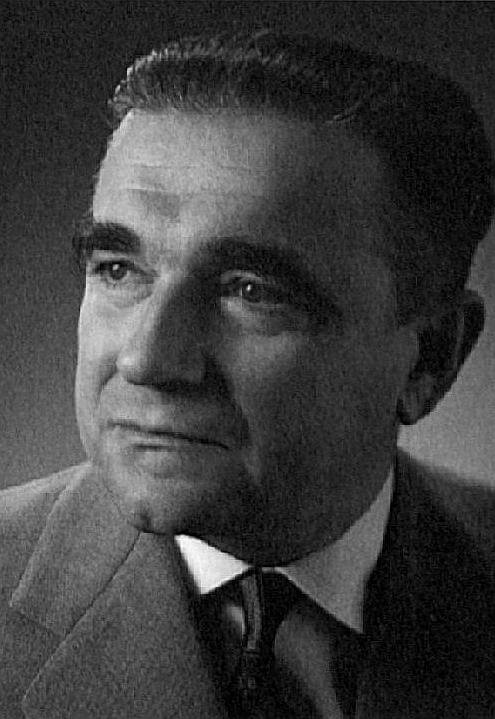Chapter XXV: The Psychological Interpretation of Culture and History
|
||
Rather, the “collective national will” was embodied within the leader. A people’s collective will, Huber explained, is rooted in the “political idea which is given to a people.” The political idea is present in the people, but the Führer “raises it to consciousness and discloses it.” The role of the leader according to Huber is to “disclose” a people’s political idea—to bring into consciousness that which had been unconscious. The leader brings forth—makes manifest—ideas and desires that are latent within a people. His ideology reveals and crystallizes a people’s shared fantasies. The leader invents images, metaphors and phrases to convey these fantasies. He processes his own fantasies and those of his people—and “returns” information to his audience in the form of a societal discourse. By virtue of being transformed into a societal discourse, energies and passions bound to unconscious fantasies are released for action. The ideology transforms latent desires and fantasies into the “collective will” to act. The will to act is generated by the wish to actualize or bring into reality fantasies contained within the ideology. Thus, the role of the leader is not only to bring into consciousness fantasies shared by members of society, but also to devise a plan or program allowing these fantasies to transform reality. I theorize that ideologies exist as modus operandi for the expression of fantasies shared by members of a population. Ideologies become articulated as social reality by harnessing and focusing latent desires, anxieties, conflicts and fantasies. Ideologies—like “funnels”—draw forth energy bound within unconscious fantasies to make this energy available for reality-oriented action. Ideologies are societally defined discourses that transform dimensions of psychic experience into elements of culture. Germans embraced Hitler and his ideology because they liked what he was saying. The words and phrases and metaphors that he used in his speeches conveyed a message that struck a chord within the German people. Hitler’s ideas evoked a deep response. His ideology transformed vague desires, undefined fears and inchoate longings into a system of belief capable of generating action on the stage of political reality. Hitler entered politics and created National Socialism in order to express his own desires, emotions and fantasies. When he “spoke,” what was within Hitler came bursting out, gushing forth into reality. Hitler claimed that Germany was ill and presented himself as a unique politician capable of diagnosing and curing the nation’s disease. He empathized with the suffering of his people, and insisted he would act to bring about the “resurrection” of Germany. Hitler’s hysteria was contagious, generating mass hysteria. Hitler created an ideology that expressed the desires and fantasies of the German people. When Hitler spoke, people in the audience jumped to their feet and shouted, “Heil Hitler.” Germans shouted “Heil” because they agreed with what Hitler was saying. Hitler encouraged people to abandon their inhibitions to perform whatever actions were necessary to achieve the goal of saving Germany. He released indignation and rage against those whom he believed were acting to oppress or harm the nation. “We may be inhumane,” Hitler declared, “but if we rescue Germany we have performed the greatest deed in the world.” A nation or people become capable of creating “History” when they unite to engage in concerted action. Historical actions come into being as the manifestation of a people’s collective will; as a result of their desire to transform reality in accordance with fantasies contained within an ideology. History is a socially constructed reality representing the projection of shared fantasies into the external world. The leader’s ideology embodies the shared fantasies of a population—and shows people how they can make their dreams come true. Ideologies consist of interrelated propositions or theorems. They are “programs” capable of dictating forms of action. Political actions undertaken in the name of an ideology are based upon propositions or theorems contained within the ideology. Ideologies possess logic. Logic does not imply rationality. The logic of an ideology is based upon the coherence of the fantasy that is its source. Historical actions manifest the logic of fantasies contained within ideologies. The Final Solution grew out of Hitler’s proposition that the German nation was an actual body (politic)—and that Jews were bacteria within this body. Insofar as Jews were bacteria, every single one of them needed to be destroyed, lest they begin again to multiply and divide. The fantasy contained within Hitler’s ideology was the source of genocide. Howard F. Stein states that “history has to happen in a certain way.” Ideological templates present within societies dictate what can happen, and what will happen. Ideological templates are the source of history. The template precedes the act. The fantasy is prior to reality. History represents the unfolding or acting out of unconscious fantasies contained within ideologies. |
